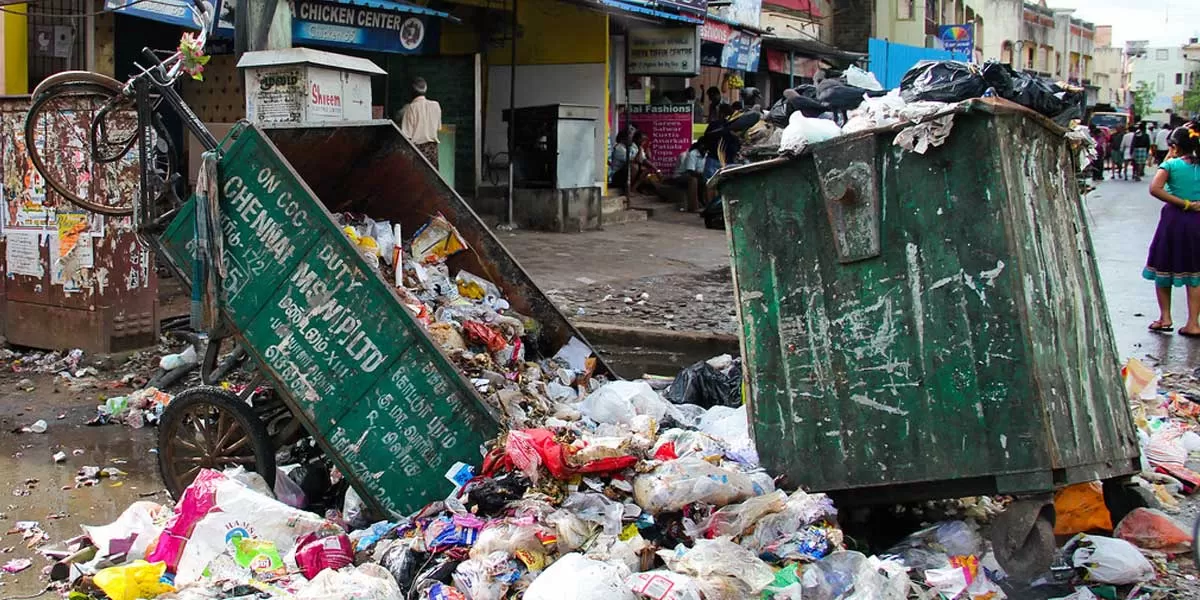In a significant step towards environmental sustainability, Indian scientists and research institutions have pioneered advanced technologies for the management of solid and plastic waste. These innovations span across various sectors, offering decentralised, eco-friendly solutions that bridge scientific advancement with practical implementation.
A range of cutting-edge technologies have been developed for efficient solid waste management:
Bio-Methanation for Organic Waste: The CSIR–Indian Institute of Chemical Technology (CSIR-IICT) has developed a high-rate bio-methanation technology tailored for decentralised sewage and organic solid waste applications. This innovation enhances biogas and bio-manure production through novel pre- and post-processing methods. The technology has already been commercialised.
Decentralised Waste Processing: CSIR–Central Mechanical Engineering Research Institute (CMERI) has created a decentralised solid waste management system. Key features include mechanised segregation of biodegradable and non-biodegradable waste, eco-friendly plastic waste disposal via agglomeration, biogas generation from organic waste, and briquette production from agricultural residue. This technology has also been transferred for industrial use.
Construction & Demolition Waste Recycling: Indian scientists have devised a method to recycle C&D waste into glass foam bricks with high compressive strength, offering a sustainable substitute for conventional building materials.
Solar Panel Recycling: A robust mechanical separator has been designed to efficiently dismantle solar PV modules, promoting recycling and sustainability within the solar energy sector.
Fly Ash Aggregates: CSIR–Advanced Materials and Processes Research Institute (AMPRI) has introduced a technology that utilises fly ash to manufacture synthetic fine and coarse aggregates. These can replace natural aggregates in construction, significantly reducing environmental impact.
Battery Waste Recovery: IISER Tirupati, in collaboration with CSIR–National Metallurgical Laboratory (NML), has developed a method to recycle graphite from spent lithium-ion batteries for use in high-energy Li-ion capacitors.
Accelerated Composting in Cold Regions: With support from the Department of Science and Technology (DST), CSIR–Institute of Himalayan Bioresource Technology (IHBT) has produced psychrophilic bacterial formulations for faster composting of municipal and agricultural waste in colder climates.
Material Recovery Facilities (MRFs): The Ministry of Housing and Urban Affairs (MoHUA) has established MRFs across the country to streamline the sorting, processing, and recycling of segregated dry waste.
Technologies for Plastic Waste Management include:
Plasto-Fuel from Mixed Plastic Waste: Under DST's Waste Management Technologies (WMT) programme, a 2-TPD demonstration plant in Vadodara has successfully converted mixed plastic waste into high-quality fuels for transport and industry.
Upcycling of Electronic Waste Plastics: CIPET–Bhubaneswar has developed eco-friendly technology for converting plastics from electronic waste into high-impact plastics.
Plastic Waste into Tiles: CSIR–National Physical Laboratory (CSIR-NPL) has created technology to transform plastic waste into various types of tiles. This innovation has also reached commercial application.
Plastic Waste Management Centres: The Department of Chemicals & Petrochemicals (DCPC) has set up three centres to develop economical and eco-friendly recycling methods and promote digital demonstrations in plastic waste management.
Swachh Bharat Mission (SBM): The Government’s flagship programme continues to play a pivotal role in advancing waste management practices in both rural and urban India. The launch of SBM Urban 2.0 in October 2021 aims to create “Garbage-Free Cities.” It has already led to the establishment of MRFs, waste-to-energy plants, and recycling units, thereby enhancing urban waste processing capacity by 105,876 TPD.
These initiatives underscore the Government’s commitment to translating scientific breakthroughs into tangible, real-world impact—bolstering sustainability and reducing the burden of waste on our environment.
This information was provided by Dr Jitendra Singh, Minister of State (Independent Charge) for Science & Technology and Earth Sciences, in a written reply to the Lok Sabha.


















